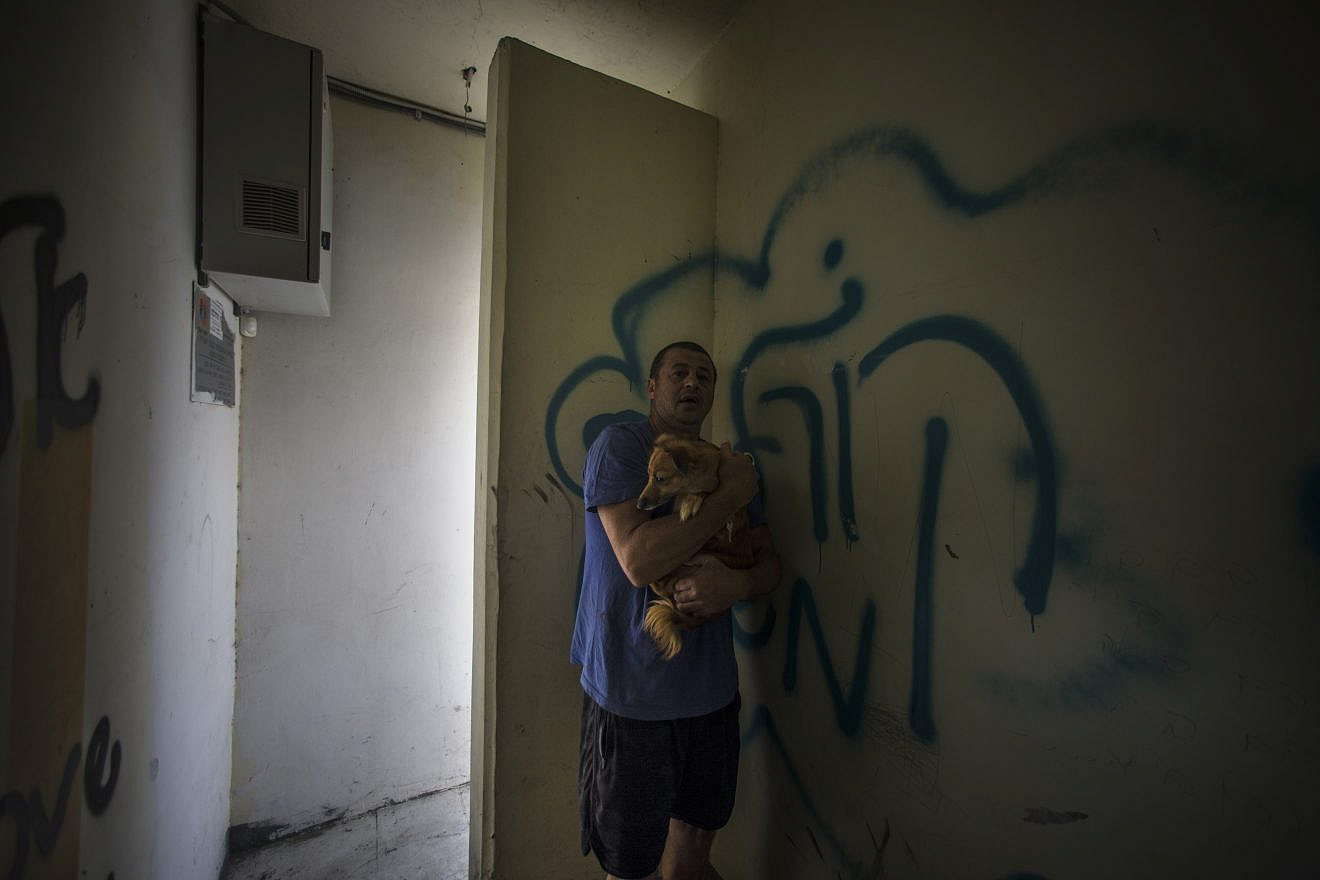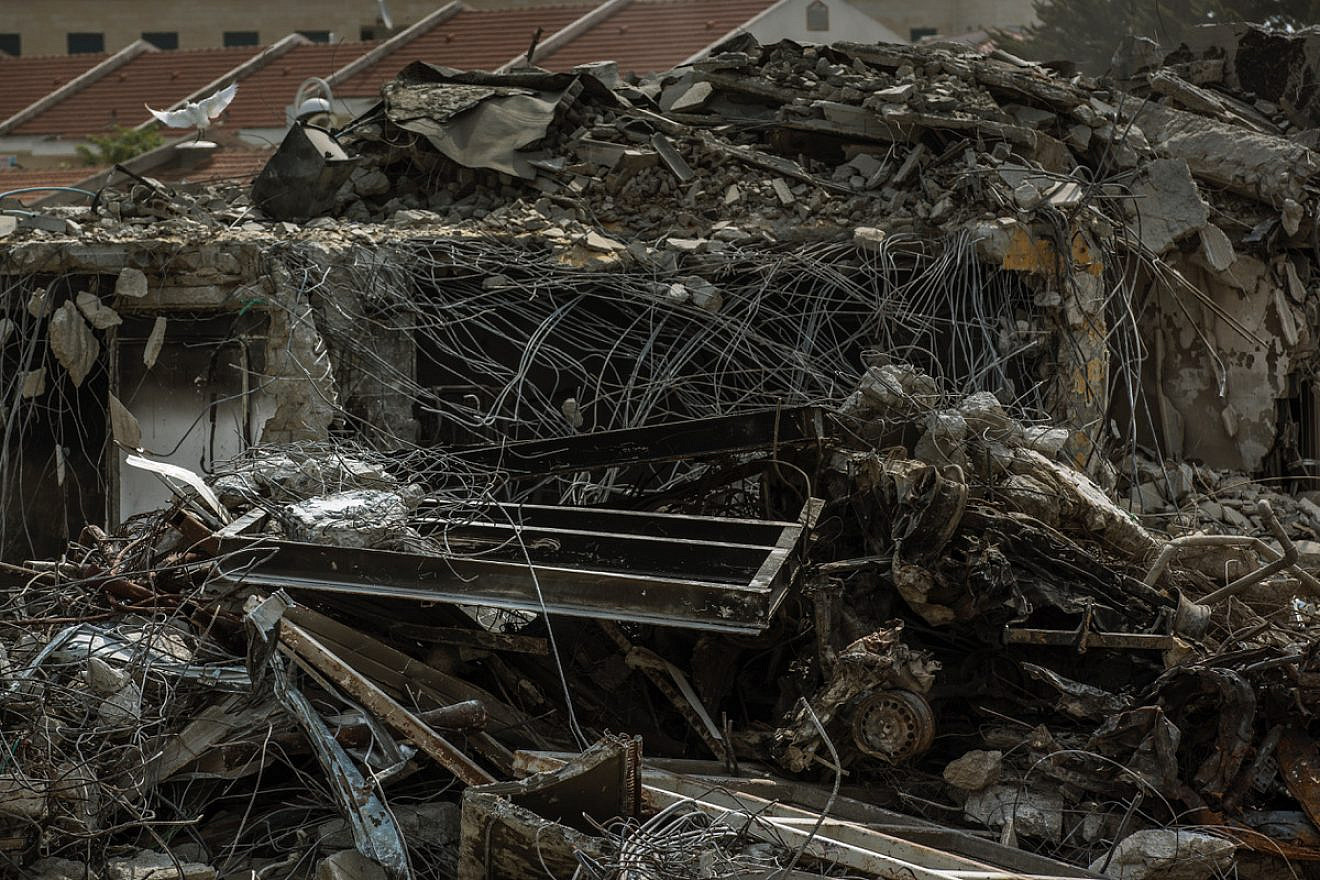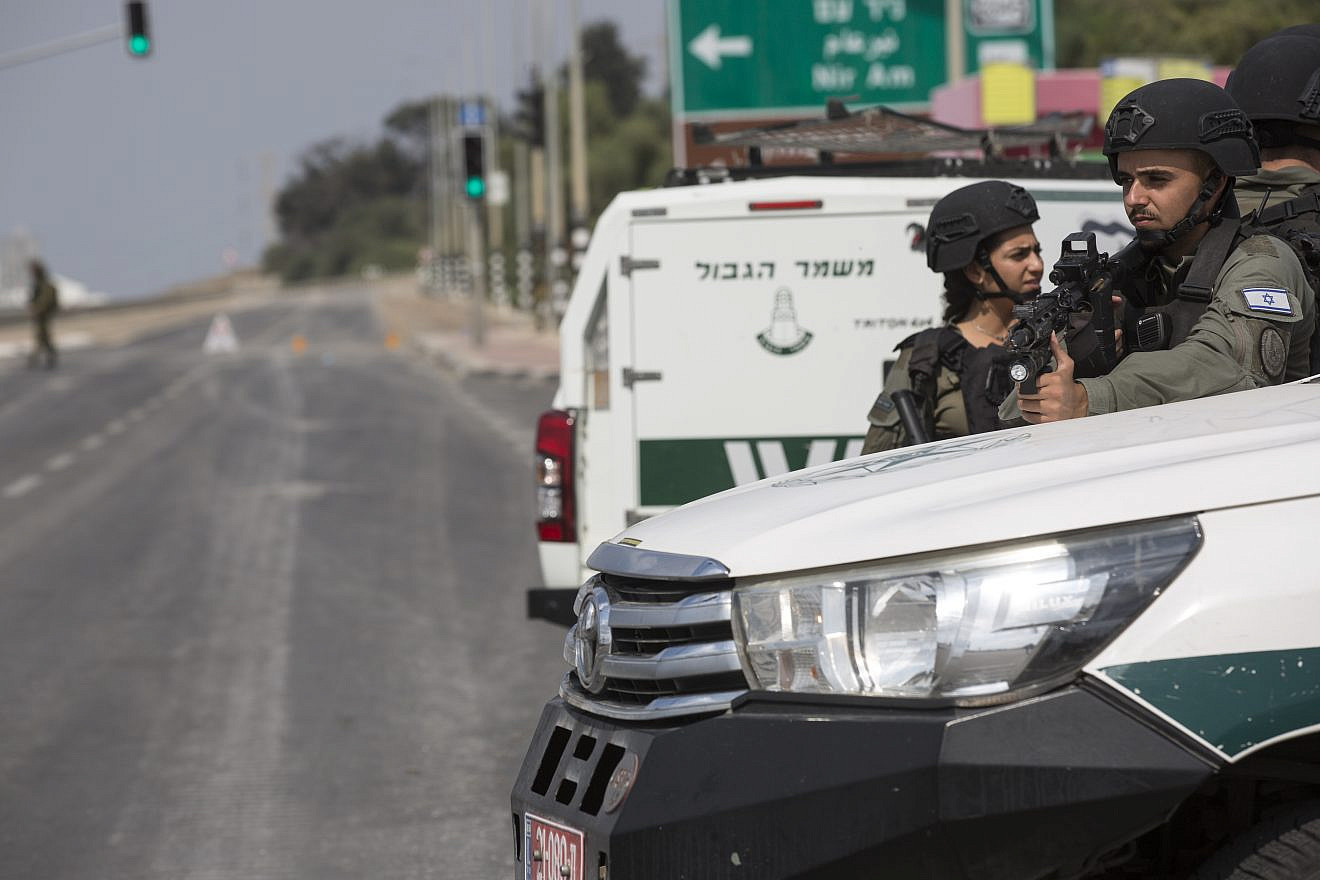SDEROT, Israel—This city, at its closest barely a half-mile from the Gaza Strip, lies forlorn, its storefronts shuttered and its tens of thousands of residents mostly gone.
An eerie hush, punctuated by the booms of explosions in the distance and the periodic barrages of enemy rockets, pervaded the southern Israeli city on Wednesday.
Sderot gained international notoriety for facing years of Palestinian rocket attacks from the Gaza Strip, ever since 2001 and the early stages of the Second Intifada two decades ago.
The residents of this city, which was founded in 1951 as a transit camp for Israeli immigrants, have known difficult days before. But Saturday’s surprise Hamas attack, in which more than 1,500 terrorists overran about two dozen locations near the Gaza Strip, including Sderot, saw decades of Palestinian terrorism in these hard-hit areas reach unprecedented levels.
Most of the city’s residents were bused to hotels or headed to relatives across Israel after the bloody weekend in which more than 1,200 Israelis were killed and over 3,000 wounded.

“It really is impossible to stay here any longer,” said Michael Demetriov, 55, as he held his trembling dog, Magi, in a bomb shelter as a rocket warning siren sounded at midday.
Due to Sderot’s proximity to Gaza, residents have only 15 seconds to find cover when the sirens peal.
Demetriov, who made aliyah from Ukraine in 1990 and has lived in the city for the last seven years, was awaiting transport out with his family.
He is giving his 4-year-old dog to a neighbor who is staying put. “She [Magi] is scared, and she senses we are leaving.”
Indeed, most of the people on the city’s streets Wednesday were security personnel, their weapons drawn, rescue workers or members of the press, far outnumbering the remaining residents.
Sukkahs from the recent holiday remained in place, as did huge advertisements for candidates for the now-postponed municipal elections. A pregnant stray cat had a children’s playground all to herself. Cars riddled with bullets from the attack were being trucked away.
A bulldozer was at work demolishing the remains of the city’s police station, where terrorists holed up this weekend and were driven out in a bloody firefight. At least 20 police officers were killed during the combat in the city.

Some choose to stay
“What can we do, this is the situation,” offered Mamlakay Robinova, 46, who has lived in the city for 18 years since immigrating from Azerbaijan. She was hanging her laundry outside her apartment in a surreal scene of normalcy. “It is better to be home,” she said.
Robinova expressed thanks to the “people of Israel” who had come to offer her food and candies.
“Everybody here is like my brother,” said Zaid Abu-Khar, 24, a municipal worker from the Bedouin town of Hura near Beersheva, as he swept the street. “This will only end when those who want to destroy us are destroyed.”
Many of those who remained behind were elderly or without family elsewhere in Israel.
“Why should I leave?” asked Vladamir Kredermvin, 65, who has lived in the city for the last decade since immigrating from eastern Russia, and does not have a sealed room in his one-room flat.
“This is our land,” he said, standing next to a municipal bulletin board affixed with drawings of support that kids from Jerusalem had made.
At the edge of the town, overlooking the lush greenhouses of Kibbutz Nir Am in the desert, a makeshift war room for the military and emergency workers had been set up. Overhead, a billboard offered 50% off on furniture, while another advertised new 2-, 3-, 4- and 5-room apartments and penthouses.
“For years the people here lived with the terrorism of rockets,” said Rami Shaya, 63, a volunteer with the United Hatzalah emergency medical services organization from Kibbutz Sde Boker. “But attackers roaming the streets savagely attacking civilians is something that is totally different to cope with both emotionally and physically.
“The people who did this were without humanity. I cannot relate to them as human beings,” Shaya said.
With the IDF expected to mount a ground incursion into the Gaza Strip, the Sderot residents face more uncertain days ahead.
“We are just seeing the beginning,” a reserve officer in full battle gear said when asked when this would all end.

























